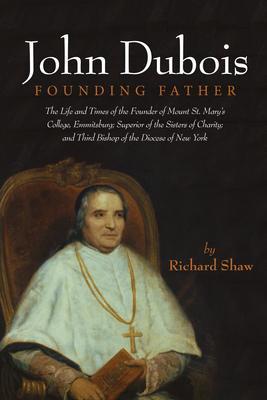St. Elizabeth Seton called him "The Pope"; his students dubbed him "Little Bonaparte." To Pope Gregory XVI he was "my most particular friend"; while his own Bishop charged him with acting as a "Bishop" rather than as parish priest. The man was Father John Dubois, an exile from France, the founding father of many cherished Catholic institutions in America. Dubois was beloved by the "little people"--the scattered Catholics he served in rural Maryland, Virginia, and Pennsylvania; and he was the amiable friend of Protestants such as James Monroe and Patrick Henry. In 1808 he began his "Mountain" seminary at Emmitsburg, Maryland, and 175 years later Mount St. Mary's College still serves as his memorial to education. The founder would just as easily pick up an axe to fell lumber for his college buildings, as he would ride through the night on horseback to minister to the sick and dying. He called himself "an ugly little wretch," but to his students (his children) he was fondly remembered as "old father." Dubois' great life's work was his role as spiritual and physical architect of the Sisters of Charity in the United States. Without him, Elizabeth Seton might never have been known to history. This "American St. Vincent de Paul" wrote the first rule for the American sisters and pushed them out into missions across the country. Dubois was domineering, a tireless workman, often rough and blunt--not at all Mrs. Seton's choice as a religious Superior. In 1826 the labors of the benevolent dictator ended at Emmitsburg, and he was called to head the immigrant church in New York. John Dubois became bishop of a turbulent diocese, dominated by fiercely nationalistic clergy and laity--"chiefly Irish." Despite his good will, and although dedicated to all that was "chiefly American," the French emigre remained a foreigner to his people in New York City. Embattled for sixteen years with insolent clergy and powerful lay trustees, the Bishop shunned public controversy and concentrated on pastoral care. He made frequent visits to the missionary territory in upstate New York, worked through cholera epidemics and went on a begging tour in Europe. In the 1830s, Protestants were beginning to react violently to Catholics and the immigrant Irish, yet Dubois was respected by numerous non-Catholics. He was also a friend to important Catholics: Roger Taney, Charles Carroll, Pierre Toussaint, the black philanthropist, and Mark Frenaye. He had enough faith in one young immigrant to ordain h











